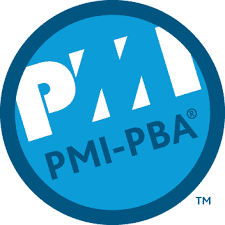The establishment of PMI-PBA® came to the market early in 2015. It is one of the best certifications for business analysts.
The PMI-PBA® is mostly for those who handle programs and projects. Most business analysts are aware of the certification. They mostly conduct business analysis almost every day. If you pass the PMI-PBA®, a certificate will be issued which will prove your ability to work more effectively with your business partners and make sure to get huge and successful business outcomes. It is considered to be one of the most important courses for business analysts.
Necessary Requirements For PMI-PBA® Certification
There are a few requirements that need to be fulfilled in order to achieve PMI-PBA®.
- Have a minimum of 2.5 to 3 years of experience working on project teams over the past eight consecutive years.
- Experience – For a secondary degree you need to have a minimum of 3 years of experience in business analysis. And for the bachelor’s degree which is the primary degree, a minimum of 5 years of experience is required.
- In short, Secondary degree – 7,500 hours (5 years) of work experience
- For bachelor’s degree – 4,500 hours (3 years) of work experience
- You should have a minimum of 35 hours of business analysis education which will prove your ability for PM –PBA®.
Get To Know The CBAP Certification
CBAP has been in existence for more than a decade now and after evolving is much broader. The main areas of work after CBAP certification are consulting, process improvement, requirements management or analysis, and systems analysis.
There are certain requirements for taking this exam and certain qualifications you have to meet:
- You need to have at least 3,750 hours of business analyst work experience over the past seven years.
- Must have at least 900 hours in two of the six knowledge areas, or 500 hours in four of the six knowledge areas.
- Have an experience of at least 21 hours of professional development in the past four years.
- Have a high school education.
- You have to receive at least two references from your client, career manager, or other CBAP recipient.
- Have a code of conduct
There is not much difference between CBAP and PMI-PBA®. If you are interested in a project-based business analyst role and really want to get along with it for your career then PMI-PBA® can be really helpful for you. The organization that you work for has to be engaged with PMI® in order to achieve your career. There the value of the certification will be more and you will achieve success easily.
CBAP is a little broader compared to that of PMI-PBA®. If you are interested in project-focused business analysts but want a bigger seat at the table then you can always go for CBAP. The certification may add more value to your work and influence you to bring a valuable change to the organization.
Conclusion
PMI-PBA® is especially for people who are interested in business. Mostly for the business analysts who put their efforts into projects and various programs. They are the experts having a great experience in project management whereas in contrast CBAP or IIBA is much broader than that PMI-PBA®. It focuses on activities that exceed project management and programs. The whole of an organization takes initiative and gets engaged in the program.
The choice of PMI PBA vs CBAP depends on you. Both of these have benefits that can guide you in your career. These programs guarantee you a better career and stable growth. A large number of recruiters search for these experienced employees.
Related Posts
- WHAT IS A HOLDING COMPANY: How They Work
- PEO COMPANIES: Top PEO Companies 2023
- MEDIA COMPANY: Meaning & the Top Biggest Companies Worldwide
- Service Marketing: 2023 Definition, Examples, Strategies, Types
- RESTRICTIVE COVENANTS: How Do They Work
- HOW TO FIND PURPOSE IN LIFE: Top 2023 Practical Hacks & Guide





